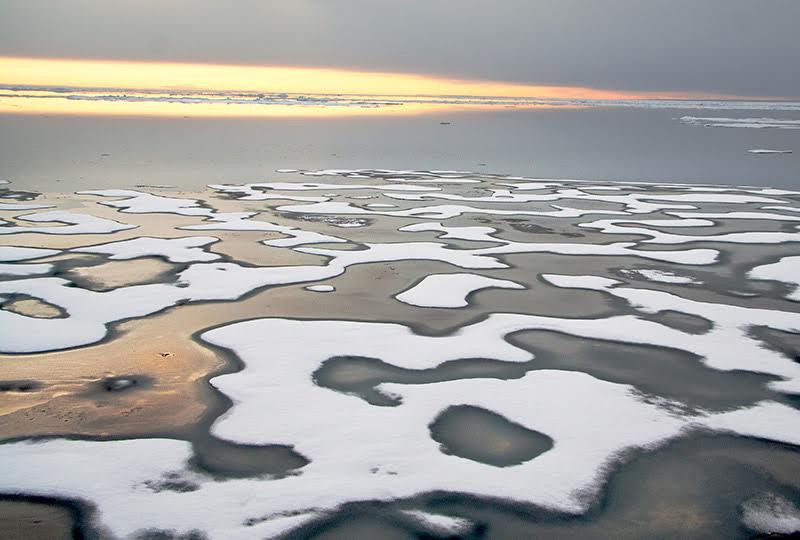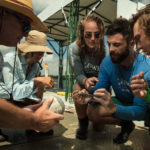UWF invites public to explore integration of art and science through STEAM2017
Beginning in February 2017, the University of West Florida will explore the integration of science, technology, engineering, art and mathematics to determine how those fields can influence the preservation of a clean environment through a new public program, STEAM2017.

STEAM2017 is a five-week program which will include art exhibitions, lectures, artist-led workshops for students of regional K-12 programs, and a one-day colloquium with participants and speakers from around the nation. It was created to encourage meaningful dialogue between University departments and various fields of study, while sparking conversations surrounding environmental stewardship. The theme for the 2017 program will focus on water and the environment.
The program’s public events include an exhibition opening at The Art Gallery at UWF on Feb. 2, 2017, lectures at the Artel Gallery and First City Art Center throughout February and March, and the colloquium at the Pensacola Museum of Art on March 4, 2017. Public panels will be led by Jiayi Young, professor of design at UC Davis; Shih-Wen Young, professor of astronomy and physics at American River College; Elizabeth Demaray, award-winning artist; PlantBot Genetics, the collaborative team of Wendy DesChene and Jeff Schmuki; Thomas Asmuth, assistant professor at the UWF Department of Art; and Sara Gevurtz, adjunct professor of art at VCU.
The STEAM2017 Colloquium on March 4 will serve as a meeting for artists, scientists and the public to discuss the relevancy and potential of humanities-based efforts in environmental conservation. The presenters for the colloquium will be scholar-educators from many departments across UWF, researchers from the Institute for Human & Machine Cognition, and artists and scientists from around the nation. The sessions will engage the public on ideas surrounding the merging of art and science with the environment and ecologies. Demaray, the keynote speaker, will discuss the role of hybridity to shape the future of research.
Asmuth said the STEAM2017 program was created to deliberately provoke discussions and debate.
“I’m hoping it creates public dialogue,” he said. “We are trying to collapse some of the distance between what’s heard in environmental reports and statistics in order to encourage people to talk across disciplines, to try and inspire people, and to create an ecosystem – a mutualistic environment – where art inspires and even suggests solutions to the scientific problems we face.”
STEAM2017 will offer students, as well as community members, numerous examples of how art and design will provide the flexible thinking and creative problem solving needed to understand today’s most pressing environmental issues. The program is supported by the UWF College of Arts, Social Sciences and Humanities.
“Through the Experience UWF Downtown Lecture Series and STEAM2017, the college is actively supporting programming that brings cutting edge ideas across various disciplines to the table to address relevant problems in contemporary society,” said Dr. Jocelyn Evans, associate dean of the College of Arts, Social Sciences and Humanities. “Higher education works better when its teacher-scholars work together.”
Demaray, the keynote speaker at the STEAM2017 Colloquium on March 4, will also be a featured speaker in the Experience UWF Downtown Lecture Series event at the Pensacola Museum of Art on Friday, March 3, where her topic will be transdisciplinary collaboration.
Funding for STEAM2017 was provided through a grant from the Florida Humanities Council with funds from the National Endowment for the Humanities. Any views, findings, conclusions or recommendations expressed in this program do not necessarily represent those of the Florida Humanities Council or the National Endowment for the Humanities.
For more information about UWF’s STEAM2017 programing, visit uwf.edu/steam2017.


